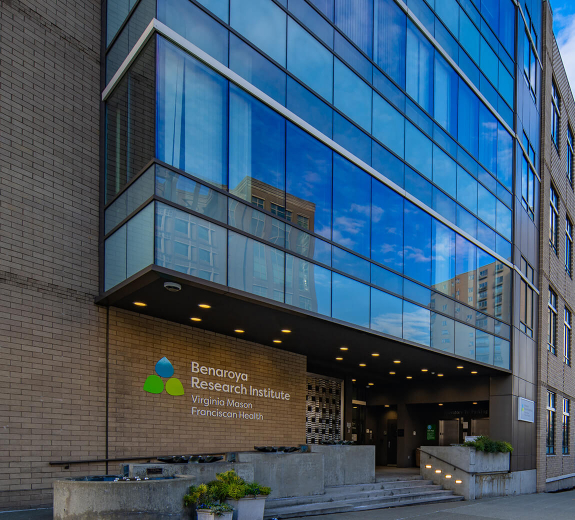The Moyer Foundation, in partnership with The Friends of Greg Brooks group, will donate nearly $100,000 to The Neuro-genomics Laboratory at Benaroya Research Institute at Virginia Mason Medical Center (BRI) to accelerate ALS (Lou Gehrig's disease) research. Benaroya researchers will employ the use of technology called laser capture microdissection (LCM) in this research effort. LCM is a technique that uses infrared lasers through a microscope to isolate and collect specific cells and is seen as a key tool to advance research on this front.
John Ravits, M.D. will spearhead the research team at BRI. "Finding a cure for ALS is the goal -- and we are deeply grateful to the Moyer Foundation and The Friends of Greg Brooks for this grant to support this research. The Neuro-genomics Laboratory at BRI is combining novel new biotechnologies for the purpose of investigating ALS. The cause of the degeneration is unknown. In our research, we are combining these new biotechnologies to try to determine what processes in the motor neurons may be important in their degeneration," said John Ravits, "If we can identify such processes, we might be able to devise therapies to target them."
The Moyer Foundation and BRI have a common goal. The research grant underscores The Moyer Foundation's mission to support children and families in severe distress due to challenges such as ALS, and BRI’s commitment to lab discoveries and clinical research to improve human health.
"The Moyer Foundation is proud to support research that may help eliminate ALS--a dreaded disease—and support research that could improve the lives of thousands of people. We are so pleased to be able to support local families and BRI, one of the Northwest’s outstanding research institutes," said The Moyer Foundation Executive Director Gary Pollock.
Amyotrophic lateral sclerosis (ALS), commonly known as "Lou Gehrig's disease," is a progressive neurodegenerative disease that affects nerve cells in the brain and the spinal cord. According to U.S. population studies, more than 5,600 people in the U.S. are diagnosed with ALS annually and as many as 30,000 Americans have the disease.
The Benaroya Research Institute at Virginia Mason is a non-profit research institute focusing on molecular and cell biology of diabetes, arthritis, immunology, genomics, cardiovascular research and cancer, with a clinical research program that conducts approximately 150 clinical trials every year. Virginia Mason Medical Center, founded in 1920, is a non-profit comprehensive regional health care system that combines a primary and specialty care group practice of nearly 400 physicians with a 336-bed acute care Seattle hospital.
The Moyer Foundation's mission is to offer encouragement, comfort and support to children and families enduring a time of profound distress and to provide opportunities for enhancing overall wellness, stability and quality of life.



